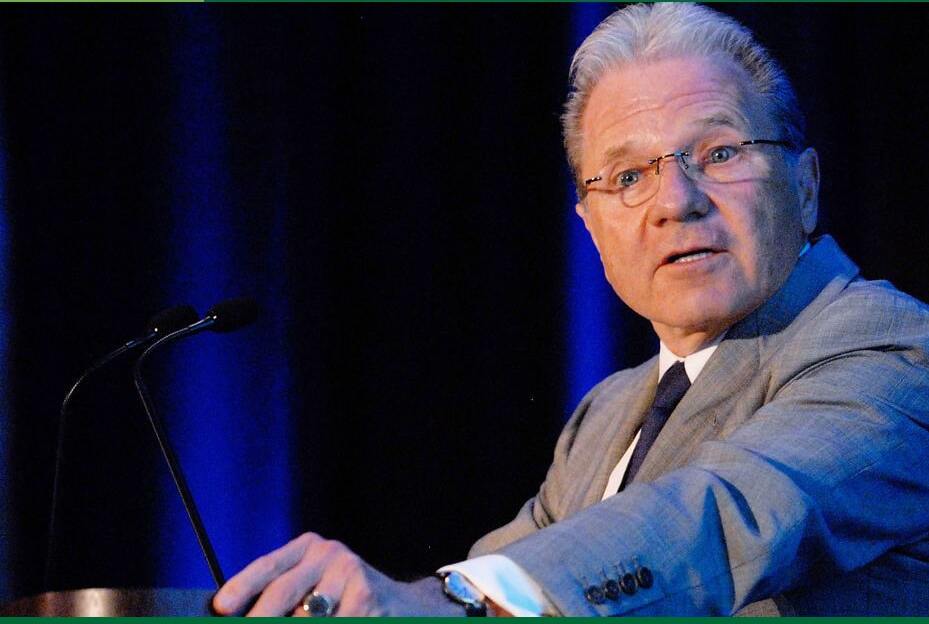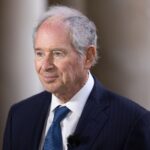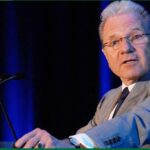- Home
- Billionaires
- Investing Newsletters
- 193CC 1000
- Article Layout 2
- Article Layout 3
- Article Layout 4
- Article Layout 5
- Article Layout 6
- Article Layout 7
- Article Layout 8
- Article Layout 9
- Article Layout 10
- Article Layout 11
- Article Layout 12
- Article Layout 13
- Article Layout 14
- Article Sidebar
- Post Format
- pages
- Archive Layouts
- Post Gallery
- Post Video Background
- Post Review
- Sponsored Post
- Leadership
- Business
- Money
- Small Business
- Innovation
- Shop
Recent Posts
Thomas Peterffy: A Visionary of Modern Finance

Thomas Peterffy, a Hungarian-American entrepreneur, is widely regarded as one of the most influential figures in the world of finance. As the founder of Interactive Brokers, he pioneered the use of technology in trading, transforming the landscape of global markets and revolutionizing the way financial transactions are executed. His life is a story of resilience, ingenuity, and relentless pursuit of innovation, embodying the archetypal American dream.
Born in Budapest, Hungary, in 1944 during the final months of World War II, Peterffy’s early life was shaped by political turmoil and economic hardship. Hungary fell under Soviet influence, and like many others who lived under communism, Peterffy experienced both restrictions on personal freedom and the constraints of a centrally planned economy. His father, who was once a wealthy industrialist, was imprisoned for being part of the capitalist class, and the family lost most of their wealth. This background shaped Peterffy’s disdain for collectivism and deep appreciation for free-market capitalism.
In 1965, Peterffy emigrated to the United States with little more than hope and ambition. He spoke no English and worked initially as a draftsman for an engineering firm. However, his innate talent for mathematics and computer programming soon led him to more advanced roles. He worked as a computer programmer on Wall Street in the 1970s, gaining exposure to the intricacies of the financial markets. This experience became the foundation upon which he would build his legacy.
Peterffy’s breakthrough came when he bought a seat on the American Stock Exchange (AMEX) in 1977. At a time when trading was done manually and decisions were made by gut instinct, Peterffy introduced the concept of using computers to analyze and execute trades. He developed algorithms that could identify arbitrage opportunities and optimize trading strategies far beyond the capabilities of human traders. While others doubted the utility of such technology, Peterffy’s approach proved superior.
In the early 1980s, he founded the company that would become Interactive Brokers. Initially a small trading firm, the company grew rapidly due to Peterffy’s commitment to automation, efficiency, and transparency. By building one of the first fully automated trading platforms, Peterffy enabled investors to trade on multiple exchanges around the world with minimal cost and maximum speed. His platform not only served institutional clients but also opened up sophisticated tools to individual traders, democratizing access to financial markets.
Throughout his career, Peterffy remained fiercely independent and principled. Despite his immense wealth, he lived modestly and often spoke out on political and economic issues. A staunch advocate of capitalism, he warned about the dangers of socialism and excessive government intervention. His controversial television ads, in which he shared his experiences under communism, reflected his commitment to preserving economic freedom in America.
Peterffy’s leadership style was often described as demanding yet visionary. He held high standards for himself and his employees, expecting precision and accountability at every level. Under his guidance, Interactive Brokers became known for its robust technology, low costs, and global reach. It attracted a diverse client base, including hedge funds, proprietary trading firms, financial advisors, and retail investors. The firm’s ability to stay ahead of technological trends solidified its place as a leader in electronic brokerage services.
As of the mid-2020s, Peterffy is one of the richest individuals in the United States, with a net worth measured in tens of billions of dollars. Despite his financial success, he remained relatively low-profile compared to other billionaires, focusing more on business operations and market development than on celebrity. His legacy lies not just in wealth but in the profound changes he brought to an industry once ruled by paper, human error, and slow communication.
Peterffy’s influence extends beyond business. He has been involved in philanthropy, although more discreetly than some of his peers. He has supported various educational and free-market initiatives, aligning with his belief in meritocracy and opportunity. His life journey—from a young refugee with no English skills to a titan of finance—serves as inspiration for entrepreneurs and immigrants worldwide.
The story of Thomas Peterffy is also a case study in foresight. While many feared automation would displace workers or reduce market fairness, Peterffy envisioned a world where technology could empower individuals and increase transparency. He saw no contradiction between efficiency and fairness; in fact, he believed the former was necessary for the latter. His vision turned out to be prescient, as today’s financial markets are dominated by electronic platforms, real-time data, and algorithmic trading.
Peterffy stepped down as CEO of Interactive Brokers in 2019 but remained chairman and continued to influence the strategic direction of the firm. His commitment to innovation endures, as the company continues to expand its offerings and improve its platform. Whether it’s through new financial instruments, better user interfaces, or international expansion, Peterffy’s fingerprints are all over the continued evolution of Interactive Brokers.
Ultimately, Thomas Peterffy’s life is a powerful reminder of what can be achieved through determination, intellect, and a willingness to challenge the status quo. He reshaped an entire industry not by following trends, but by creating them. In doing so, he not only built a personal fortune but also contributed to a more accessible, efficient, and competitive financial system. His story is not just about finance; it’s about freedom, innovation, and the transformative power of ideas.
- algorithmic trading
- American dream
- American success story
- billionaire entrepreneur
- brokerage services
- Business Leadership
- capital markets
- capitalism
- Central Europe history
- digital finance
- Disruptive Innovation
- economic freedom
- economic reform
- economic vision
- Electronic Trading
- Entrepreneurship
- finance pioneer
- financial engineering
- financial independence
- financial innovation
- financial legacy
- Financial Markets
- Financial transparency
- Fintech
- free market capitalism
- Global Finance
- hedge funds
- Hungarian immigrant
- immigrant success
- innovation in trading
- Interactive Brokers
- investment revolution
- investment tools
- market automation
- market efficiency
- modern finance
- personal success story
- retail investors
- Risk management
- self-made billionaire
- stock exchange
- stock trading evolution
- Technology in finance
- Technology Pioneer
- Thomas Peterffy
- trading algorithms
- trading platforms
- trading technology
- Wall Street
- Wall Street evolution
Recent Posts
Categories
- 193 Countries Consortium Partner1
- 193cc Digital Assets2
- 5G1
- Aerospace & Defense48
- AI37
- Arts3
- Banking & Insurance11
- Big Data3
- Billionaires1,316
- Boats & Planes1
- Business332
- Careers13
- Cars & Bikes79
- CEO Network1
- CFO Network17
- CHRO Network1
- CIO Network1
- Cloud10
- CMO Network18
- Commercial Real Estate7
- Consultant1
- Consumer Tech194
- CxO1
- Cybersecurity73
- Dining1
- Diversity, Equity & Inclusion4
- Education7
- Energy8
- Enterprise Tech29
- Events11
- Fintech1
- Food & Drink2
- Franchises1
- Freelance1
- Future Of Work2
- Games149
- GIG1
- Healthcare79
- Hollywood & Entertainment203
- Houses1
- India’s 1000 Richest1
- Innovation46
- Investing2
- Investing Newsletters4
- Leadership65
- Lifestyle11
- Manufacturing1
- Markets20
- Media327
- Mobile phone1
- Money13
- Personal Finance2
- Policy569
- Real Estate1
- Research6
- Retail1
- Retirement1
- Small Business1
- SportsMoney42
- Style & Beauty1
- Success Income1
- Taxes2
- Travel10
- Uncategorized13
- Vices1
- Watches & Jewelry2
- world's billionaires1,285
- Worlds Richest Self-Made Women2
Related Articles
The Life and Legacy of Andrey Melnichenko & Family
Andrey Melnichenko is a name that resonates with wealth, influence, and industrial...
By 193cc World's BillionairesMay 5, 2025The Remarkable Journey of Low Tuck Kwong: From Humble Beginnings to Indonesia’s Coal King
Low Tuck Kwong, often referred to as the “Coal King of Indonesia,”...
By 193cc World's BillionairesMay 5, 2025Shiv Nadar: The Visionary Architect of Indian IT and Philanthropy
Shiv Nadar is a name that resonates profoundly in the realms of...
By 193cc World's BillionairesMay 5, 2025Germán Larrea Mota Velasco & Family: The Silent Giants of Mexican Industry
Germán Larrea Mota Velasco is a name that resonates within the upper...
By 193cc World's BillionairesMay 5, 2025













Leave a comment